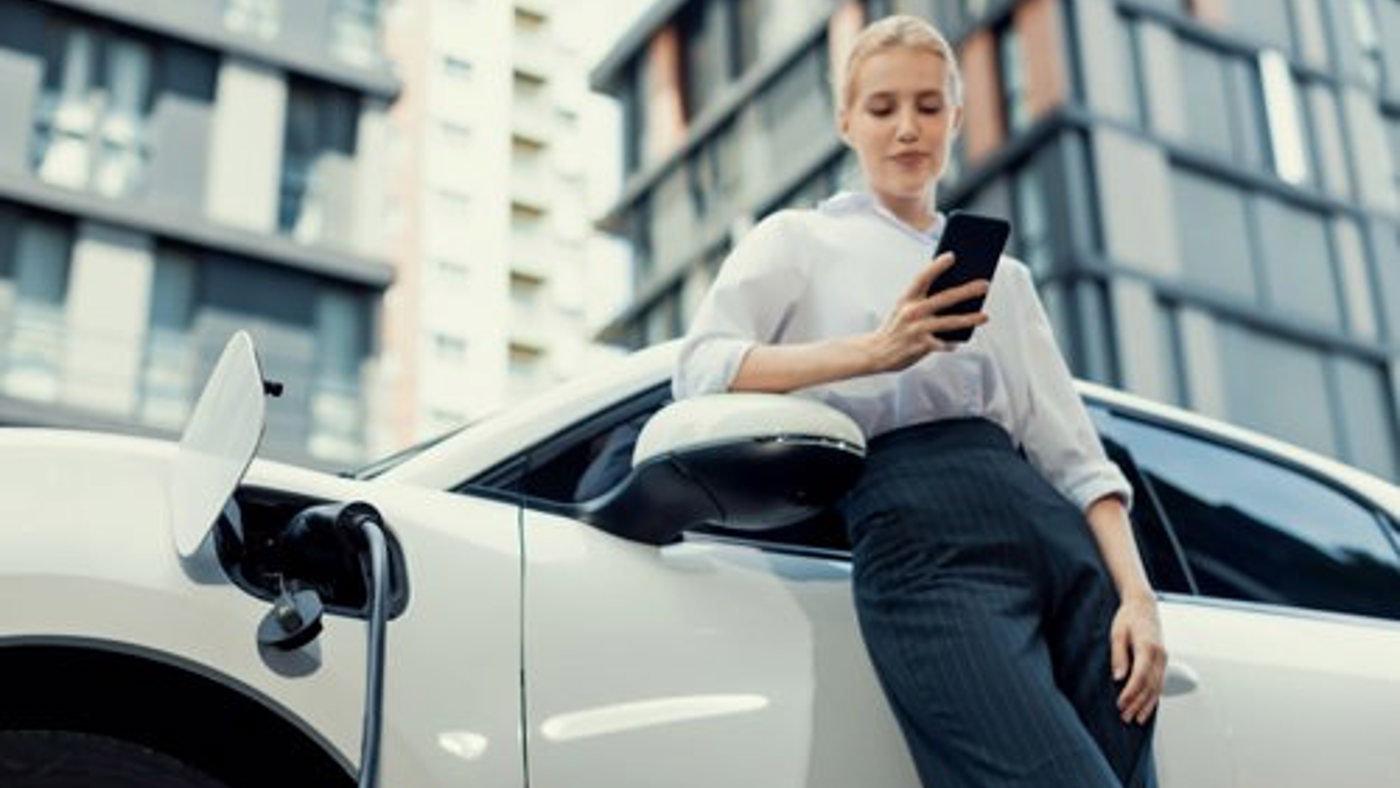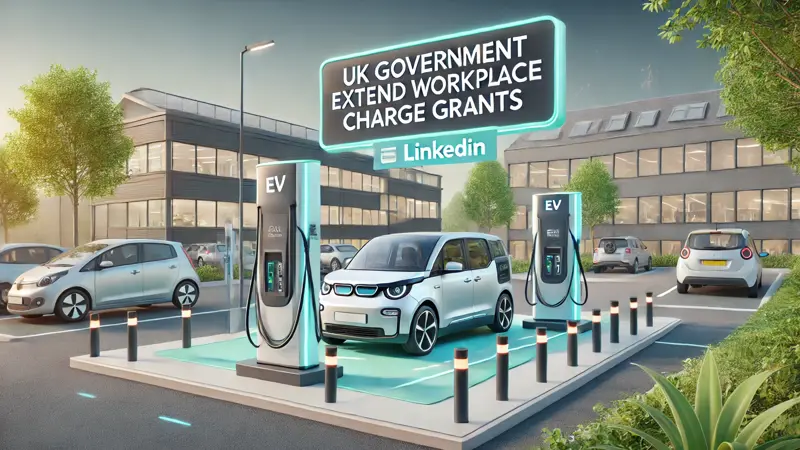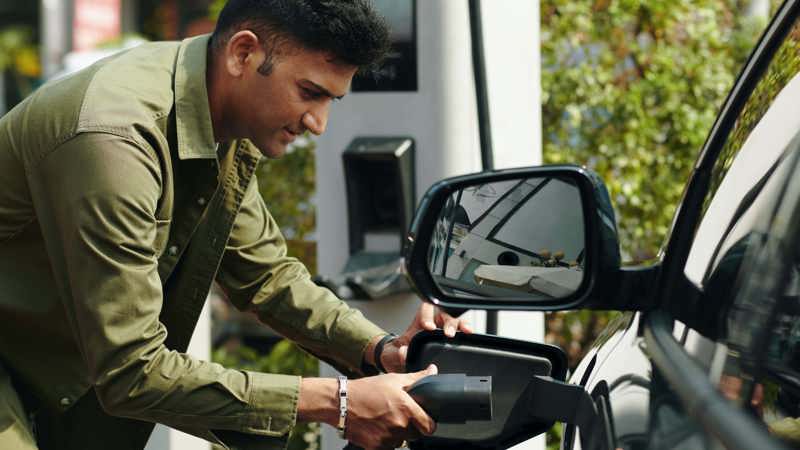
EV News Round-Up: Tesla Sales Slow & 1,000 New Ultra-Rapid Chargers
Tesla warns of ‘notably lower’ sales
Last week, one of the biggest stories across the industry was Tesla's warning over an expected slump in their sales figures during the early months of this year.
Despite increasing delivery of new vehicles by 38% in 2023, the EV giant cited threat from Chinese market competition as a potential barrier to growth before making the announcement. Following the warning, Tesla shares have subsequently dropped by 12%.
This stagnation in Tesla sales can be expected, however, as the majority of those in the market for mid to high range EVs have likely already made the switch to electric. What we could be witnessing is instead the early signs of the early EV adopter market reaching a momentary plateau, as the industry gears up to make itself a more viable option to the mainstream market.
Counter to Musk’s claims of stagnation, EV sales have continued to remain around an all-time high of 16.5% of all new car registrations in the UK 2023, with the total number of electric vehicles sold rising to a record 315,000.
And with UK Government mandates for vehicle manufacturers meaning production’s set to incrementally rise up to 80% of total vehicles by 2030, it’s clear that the demand is still there. Recent analysis from AutoTrader in their ‘Road to 2030’ research echoes this, stating: “by the second half of the year, used electric cars sold faster than any other fuel type”.
The analysis also included record figures for secondhand EV sales, citing that “9.2% of all 0–5 year-old used car enquiries were electric in 2023, up from 5.2% in the previous year, and total demand for used electric cars increased by 52%.”
What this research shows is that whilst the demand is there for EVs, it’s price and affordability that are currently keeping market share down. The challenge for manufacturers will be finding ways to reduce production costs, and with new battery developments funds being pledged by the UK Government, it's one we're working on solving.
Gridserve to add 1,000 new fast chargers: will it end slow charging?
National EV charging network Gridserve announced its plans to add 1,000 ultra rapid chargers on our public infrastructure by the end of the year.
These plans will result in greater availability of fast charging speeds for drivers and are backed by a £1 billion investment to shorten service station queues. But despite this positive news, it doesn’t necessarily mean an end to slow charging.
n reality, slow charging speeds are often caused by in-built limitations in the vehicles themselves, with cars only able to take a maximum load of electricity. So while you might see headlines promising ‘5 minute charges’, it’s important to understand that this doesn’t necessarily apply to every vehicle.
That being said, adding more availability to our public network can only be a good thing, and providing a range of charging speeds will be one of the essentials in making sure drivers’ options are varied as mass adoption accelerates. Just make sure to stay informed as to your vehicles' in-built limits on incoming power!
Should I buy an electric car?
In their latest article, Autocar broke down some of the key driver questions when considering the EV switch, in an attempt to answer the question: ‘Should I buy an electric car?’. We felt so strongly about this question, that we’re planning on publishing a full blog on the subject shortly. But in the meantime, a quick breakdown of some of the key questions:
- Upfront costs
- Long-term saving potential
- Charge and range anxiety
- Convenience
With massive changes to our EV infrastructure, promising tech development, and a huge number of substantial discounts available on many models, we feel it’s time we brought fresh analysis to the EV proposition.
If you’re a new EV driver curious about making the switch, or an EV evangelist after a validating read, we recommend keeping an eye out.
Clenergy EV and Paua help to improve EV charging for fleets
You didn’t think we’d leave this out, did you?
Over the last week, news broke of our latest industry partnership with the UK’s largest EV charging network. By partnering with Paua, we've added 10% more chargers to their already extensive network, and opened up the opportunity for Clenergy EV CPO users to advertise to the majority of Britain’s fleet drivers.
The release received coverage across industry publications, including Transport + Energy, Switched On EV, Business Monitoring, and Fleetpoint.
We mentioned last week how we’ll continue to add to our list of partnerships, so stay tuned across our socials and round-ups to keep up to date on how we’re making the EV charging experience better and easier for drivers across a whole range of networks.
That’s all for this week’s round-up! Make sure to follow our social accounts to keep up to date with all things EV throughout the week, and don’t miss our helpful EV blogs aimed at tackling misconceptions and some of the finer, often overlooked elements of your EV transition.
If you’re interested in hearing more about how EV charging software can help you make and save money on your EV journey, fill in the contact form below for a low commitment consultation from a team member.


